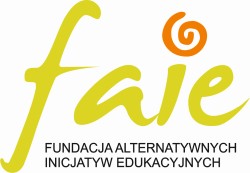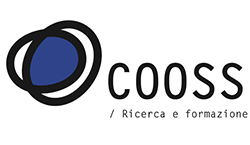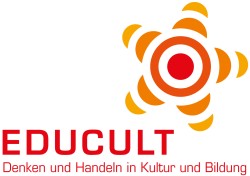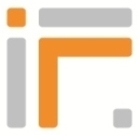
Knowledge Base (21)
Knowledge Base
Here you can find the links to existing publications, internet portals, tools, service providers related to international project management and adult education. Here you will also find the Knowledge Pills - short, concise educational video clips and recordings of webinars related to international project management.
This glossary, created by the European Commission, highlights key competences and skills needed in contemporary Europe. These can also be incorporated into application materials.
The glossary defines skills and competences in the following categories
- Knowledge
- Skills
- Attitudes and values
- Language skills and knowledge
Check out the full glossary here.
The paper “Development of Adult Education in Europe and in the Context of Knowles′ Study” offers a brief history of the development of adult education in Europe. It largely focuses on the origins of the contemporary definitions of adult education and the works of Malcolm S. Knowles, one of the scholars who helped establish the field. Teaching adults is much different from teaching children, so it is important to establish strategies and theories for the field of adult education.
Taking the time to read texts that provide the theoretical foundation for the field one works in can be useful for creating a deeper understanding of the strategies and objectives that can be implemented.
Read the full paper here.
The Council of the European Union recommendations on key competences for lifelong learning
Written by GermanThis is a legal document from 2018 that affirms the European Union’s support for lifelong learning. It emphasizes the importance of inclusive, lifelong education as a central right for all people.
It lays out the central competences for lifelong learning, which include:
- Literacy competence
- Multilingual competence
- Mathematical competence and competence in science, technology, and engineering
- Digital competence
- Personal, social and learning to learn competence
- Citizenship competence
- Entrepreneurship competence
- Cultural awareness and expression competence
Read the full document here.
The European Commission has created an Erasmus+ app! This app will help applicants through the steps they need to take when applying for EU funding for the 2021-2027 cycle. It provides information on special deals and offers, administrative processes, and more.
For more information check out the website https://erasmusapp.eu/
The app is available for download on the Google Play Store and Apple App Store.
The European Commission has created a database for research results that are produced by Horizon 2020 projects. They accept publications from many subject areas including the humanities and arts as well as social sciences, which are checked and then published for peer-review.
The research published through Open Research Europe is open for all to access, allowing the information gained through Horizon projects to have a wide reach.
Open Research Europe is currently accepting submissions and will publish its first articles in March 2021.
Check it out here.
Welcomeurope is a consultancy firm that advises organizations on how to create successful applications for EU grants and how project management, and offers trainings on a variety of topics as well.
Though many of the services offered by Welcomeurope are available for a fee, they have some introductory resources that can be obtained free of charge and which can help provide deeper understanding on EU funding and how it can be obtained.
One can download their starter kit to understanding EU funds here. This kit not only gives weekly updates on calls for proposals, but also offers tips for making sense of EU funding initiatives such as Horizon 2020 and advice for EU project leaders.
Learn about Welcomeurope’s other offers on their website.
Quality in Validation of Prior Learning: Results from a research project about a Nordic quality model for validation.
Written by DanishA group of researchers from Finland, Sweden and Denmark has conducted a study on quality in the validation process. The researchers have started from a model for quality assurance in validation developed by NVL's expert network for validation in 2013. The researchers have studied the model's usefulness by letting three education providers in the Nordic countries participate in an interactive research process in 2016 and 2017
The results in the report show that the model works to point out strategically important parts and phases in the validation process from a quality assurance perspective. The researchers can see that the model's broad approach has been useful in identifying development areas in all participating education providers, regardless of country and difference in organization.
The Nordic Quality Compass for Validation of Prior Learning
Written by DanishThe Nordic network on validation of prior learning released a set of web-based tools in December 2020. The Nordic Quality Compass tools are based on the work carried out earlier (2011–2016) by the network.
The tools can now be fully operated online with a possibility of creating a personal account and development plans. The set of tools consist of two tools for system and procedure evaluation purposes and three tools for practitioners (assessors, counsellors, and coordinators) for self-assessment purposes.
→ The tools are available for free at https://qualitycompass.eu.
Policy Brief on Quality in validation of prior learning in the Nordic region
Written by DanishThe Policy Brief is published 8 th of February 2021 by the Nordic Network for Adult Learning (NVL) that refer to the Nordic Council of Ministers .
The Policy Brief highlights ten years of the validation network's development work around the issue of quality in validation of prior learning, including the most recent web-based set of evaluation tools for policy makers as well as practitioners. It also takes a look at the current situation in the Nordic region, pinpointing the most prevalent strengths, weaknesses, opportunities as well as threats in terms of validation. The network has laid out a set of practical recommendations for future action, including expanding high-quality validation practices from formal learning towards working life and non-formal and informal settings.
English Dictionaries for International Cooperation
Written by GermanThere are many specific words and terms used in the sphere of international cooperation which are not commonly used. These dictionaries help to define these words, which makes it easier to read and comprehend English documents and applications:
More...
Online tools for the Internal Communication in project management
Written by ItalianA good internal communication strategy is one of the keys to successful project management.
The network provides fundamental tools for both the organization and the exchange of information.
CLOUD and Intranet
- is a web-based information network
- for sharing internal information, documents, collaborative work on the same file, archiving
- use of the intranet is limited to the specific organization while the cloud is open
- act as a shared communication platform within the project team
Most popular:
VIDEO MEETINGS, VIDEOCONFERENCE TOOLS
Here are many different virtual meeting platforms available that offer live streaming video, audio connection, sharing of slides, and many other visual matters.
Generally, all these tools are allowing us to:
- audio or video call with many people
- start video calls with screen sharing, in order to show the individual recipient, or the group, what is happening on their PC
- having a chat
- recording the conversation
The most used are:
Report II: Key competences and needs for support... Why is it worth to read this report? What was surprising in the research results?
Written by Agnieszka DadakThe publication summarises the results of the interrnational, open research, concerning key competences important for the successful international projects managers - and the needs for support they would expect from the management of the CSOs they work for. The report also summarises and compares the support offer for international projects managers available in several EU countries. The research was realised in Poland, Italy, Hungary, Denmark and Austria in the spring 2019. It consisted of on-line questionnaire, interviews and desk research. The research respondents were over 200 managers and management bodies members of the civil society organisations active in the field of lifelong learning, as well as some EU level grant programmes operators specialists. Please feel encouraged to read the report! Not convinced yet if worth reading? See the short films presented below!
Knowledge Pill 3: Why is it worth to read this report?
The transcript of the knowledge pill "Key competences and needs for support. Why is it worth to read..." in English.
Knowledge Pill 4: What surprised me in the research results?
The transcript of the knowledge pill "Key competences and needs for support. What surprised..." in English.
Report I: Successes and challenges…Why is it worth to read this report? What was surprising in the research results?
Written by Agnieszka DadakThe publication summarises the results of the interrnational, open research, concerning successess and challenges in European projects management. The research was realised in Poland, Italy, Hungary, Denmark and Austria in the spring 2019. It consisted of on-line questionnaire and interviews. The research respondents were over 200 managers and management bodies members of the civil society organisations active in the field of lifelong learning. Please feel encouraged to read the report! Not convinced yet if worth reading? See the short films presented below!
Knowledge Pill 1: Successes and challenges... Why is it worth to read this report?
The transcript of the knowledge pill "Successes and challenges. Why is it worth to read..." in English.
Knowledge Pill 2: What surprised me in the research results?
The transcript of the knowledge pill "Successes and challenges. What surprised..." in English.
Recordings of the webinars from the virtual international pilot course: "How to plan, develop and realise international projects..."
Written by Agnieszka DadakCourse 1: Planning & Designing the project.
1.1. Shortage Pyramid of successful cooperation among Civil Society Organisations (CSOs) [00:00:00 - 00:12:50)
1.2. Planning the project, part 1 [00:12:51 - 01:04:33]
- Why and how can you start to work internationally?
- How to prepare the development plan and project concept?
1.3. Designing the project, part 1 [01:01:35]
- What aims and goals will the project realise?
- What tasks/activities need to be realised?
- How long and when will the project be realised?
- How much would it cost?
- What are the planned outputs and results?
1.4. Designing the project, part 2 [00:55:27]
- How to measure project results?
- What could influence the project?
Course 2: Coordinating & Running the project.
2.2. Coordinating the project, part 2 [00:51:45]
- The partners and the coordinator.
- Coordinating teamwork.
- Project management – project execution.
- Team management.
- Budget control.
- Financial management.
Course 3: Monitoring & Evaluating the project.











